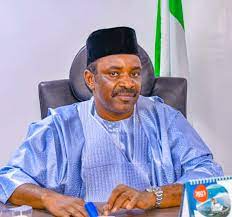The Nigerian government announced plans to reinvest an estimated N5.4 trillion saved from subsidy removal in 2024 into infrastructure and social intervention initiatives aimed at improving living standards and benefiting all levels of government. Special Adviser to the President on Information and Strategy, Mr. Bayo Onanuga, highlighted these goals in a statement released on Sunday, emphasizing the funds’ role in advancing projects that uplift Nigerians’ quality of life.
Onanuga explained that the subsidy savings would back critical projects in transport, healthcare, and education, bolstering both urban and rural infrastructure as part of President Bola Tinubu’s economic reinvestment strategy. “The savings from subsidy removal in 2024 are being actively directed towards infrastructure and social programs designed to benefit all tiers of government,” he said.
In his statement, Onanuga also addressed recent criticisms from former Vice President Atiku Abubakar, urging him to acknowledge the administration’s achievements in revenue generation and their efforts to transform these funds into nationwide development initiatives.
Onanuga further explained the administration’s priority in reviving Nigeria’s refineries to reduce reliance on fuel imports and encourage local production. This includes support for modular refineries and the Dangote Refinery, expected to significantly boost fuel supply. “President Tinubu’s model, which involves rehabilitating refineries and working with private sector managers at agreed rates, is practical and value-driven, offering greater benefits than selling national assets to interests lacking technical capability,” he stated.
Onanuga concluded by encouraging constructive dialogue, rather than divisive political criticism, and called on leaders to support the government’s strategy in driving growth and sustainable energy independence.
Background
Rising fuel prices have accompanied the subsidy removal as the government adjusts to challenges in regulating distribution. Fuel subsidy costs, previously budgeted at N3.6 trillion, are projected to rise to N5.4 trillion in 2024, reflecting heightened funding demands. Meanwhile, the Dangote Refinery has aligned its petrol prices, ranging from N970 to N990, with current market conditions, underscoring the broader market realities impacting the sector.










